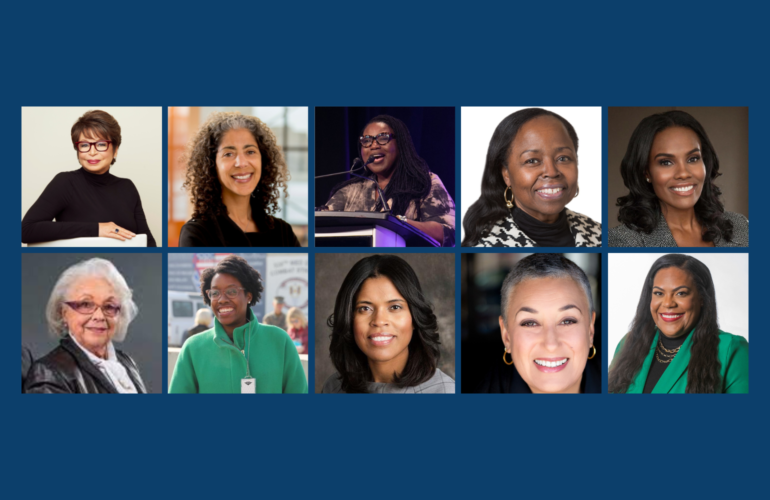McKinsey & Company in partnership with Lean In recently published its eighth annual Women in the Workplace study. This annual report card is the largest research project of its kind to assess the impact women are making in corporate America. Among other findings, the study concluded that 59 percent of Black women leaders want to be top executives, but in comparison to women leaders of other races and ethnicities, are more likely to receive signals that their advancement will be more difficult.
Better spoke to 10 of Chicago’s top Black Women of Impact — women who have risen to the pinnacles of success, despite the unique challenges that Black women experience in society. Many of the women on the 2023 list were nominated by readers and past honorees. Here, they tell us of how they have flourished not only in their profession, but as role models for others as well.
Tacoma McKnight, MD
Retired OB/GYN, Northwestern Medicine & Associate Professor Emeritus of Obstetrics and Gynecology (General Obstetrics and Gynecology), Feinberg School of Medicine Northwestern Medicine
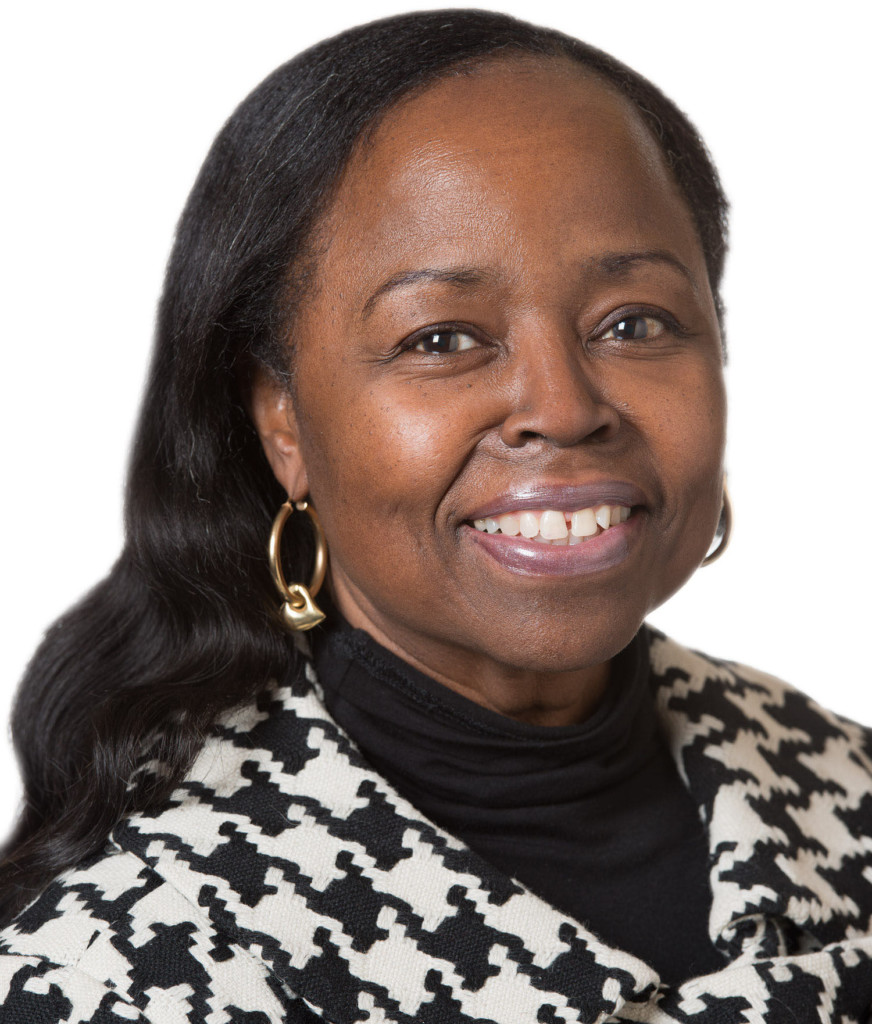
Growing up on the South Side of Chicago Dr. Tacoma McKnight was not aware of inequities in health care. “I was in my own world going to a school that was primarily people of color,” she explains. “I didn’t see the real problem impactfully until I started at Northwestern. There I was, one of 5 students of color in my medical school class and the only resident of color in my residency program.
Dr. McKnight was the second Black female OB/GYN resident at Prentice Women’s Hospital and the first Black female faculty member at Northwestern University Feinberg School of Medicine. “I came to Northwestern at a time when change was in the air,” she recalls. “People not only realized something had to change, they were willing to put in the effort to make the change.”
Her association with Northwestern spans more than half a lifetime, from undergraduate studies at the university and through 35 years of practice until her retirement. She says, “One of the reasons I stayed so long was that it was very clear that if I wanted to make a difference, I was going to have to work to get to the inside layer. It was more than just joining committees and offering suggestions.”
Dr. McKnight was the Minority Affairs Dean at Feinberg School of Medicine. “It was a small office, one assistant and a tiny budget. Today the Office of Diversity and Inclusion is multi-layered. To know that I was part of pushing all of that forward allows me to retire with a smile.”
From her standpoint, delivering babies was a bonus. Dr. McKnight stopped counting after the first thousand 11 years in. “I absolutely love OB/GYN,” she says.
“I knew from the beginning I could make a difference and improve the status of care and health. Now that I’ve retired, I can look back and see so much of what is here now was nonexistent when I began to walk this road. That makes me say it was all worth it. I think I’ve earned a little rest.”
Isobel Neal
Member, Leadership Advisory Committee of the Art Institute of Chicago
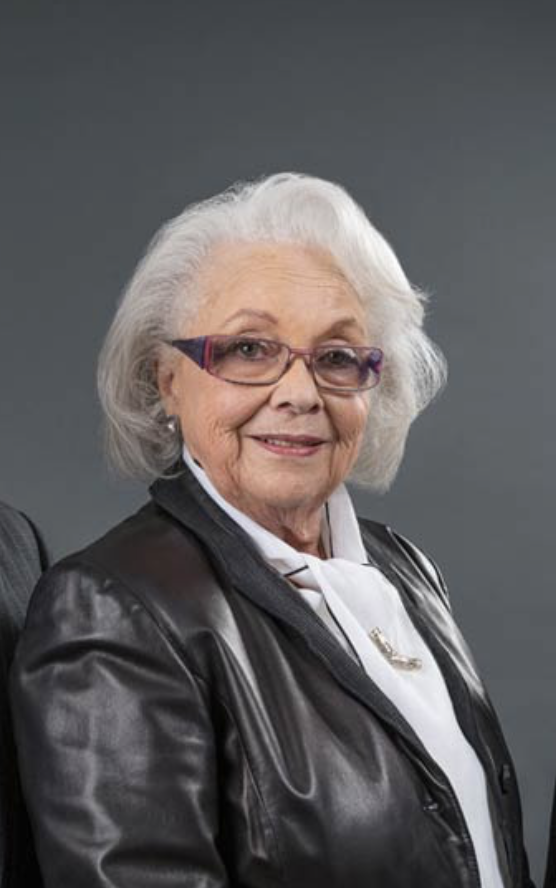
Isobel Neal has been a champion of Black artists for decades. After 20 years of teaching in the Chicago Public Schools system, Neal retired in 1975 to pursue her interest in art. At the urging of her late husband, attorney Earl Langdon Neal, she took a sabbatical in 1977 to earn an M.A. in Anthropology and Archaeology from the University of California Santa Barbara. When she returned to Chicago, Neal taught adult education classes on African Prehistory and Archeology at the Northwestern Center for American Archeology and at the Field Museum.
At the same time she was asked to chair the Black Creativity Art Show at the Museum of Science and Industry. While reviewing the work of Black artists who were interested in submitting to the show, Neal realized that many Black artists were underrepresented in Chicago. She opened the Isobel Neal Gallery in 1986 as a venue for the likes of William Sylvester Carter, Jonathan Green, Geraldine McCullough, Elizabeth Catlett, Norman Lewis, Bennie Andrews, and many others and became Chicago’s first Black member of the Chicago Gallery Association.
By the time she closed the gallery in 1996, Neal had shown the work of more than 100 artists. Now approaching 90 years old, Neal continues to remain active in the art world. She currently serves as a member of the Leadership Advisory Committee (LAC) of the Art Institute of Chicago. The LAC launched in 1994 with a grant from the Lila Wallace Reader’s Digest Fund to promote and sustain racial diversity within the Art Institute.
Tarrah Cooper Wright
CEO & Founder, Rise Strategy Group
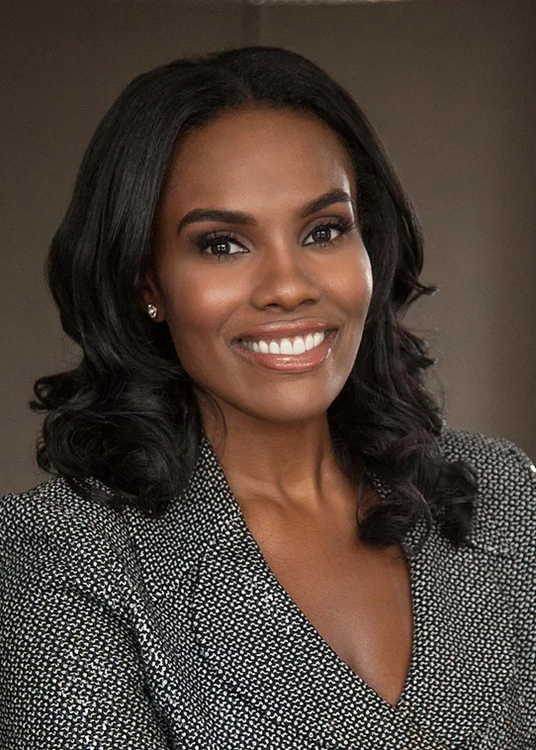
Tarrah Cooper Wright studied journalism at the University of Missouri-Columbia with an eye toward becoming a reporter, but realized she was too opinionated for that role. “If I felt something was wrong or unjust, I wanted to be an advocate instead of being objective,” she says.
After interning on Capitol Hill during college, Cooper Wright decided to pursue a career in politics and volunteered with the Obama-Biden presidential campaign. In 2008 she joined the Obama Administration at the U.S. Department of Homeland Security in Washington D.C. where she helped manage the department’s messaging. “In my opinion, journalism and politics have similar goals — to provide people with the information, the tools and the resources to be self-sovereign and to be self-sufficient,” says Cooper Wright, who went on to serve as press secretary to Chicago Mayor Rahm Emanuel for five years.
It was not only her work ethic of arriving early, staying late and coming up with creative solutions that propelled Cooper Wright forward in the Mayor’s Office, but a generations-long love of the city of Chicago. “All four of my grandparents migrated to Chicago from the Jim Crow south for the pursuit of equal opportunity,” she explains. “As issues like education, transportation and public housing came across my desk while I was working for Mayor Emmanuel, I often thought about how I was representing them.”
As the CEO & Founder of Rise Strategy Group Cooper Wright helps clients refine and perfect their messaging for business development, reputation management and crisis communications. “I feel very fortunate that what I do rarely feels like work,” she says. “I would not be able to work with the clients that I do and be as fulfilled if I wasn’t working with organizations that have an impact.”
The desire to have an impact also drives Cooper Wright’s philanthropic efforts like serving on the boards of Breakthrough Urban Ministries, Primo Center for Women and Children, SOS Children’s Villages Illinois and as a trustee of the Museum of Contemporary Art.
Mary Pattillo, Ph.D.
Chair, Northwestern University Department of African American Studies
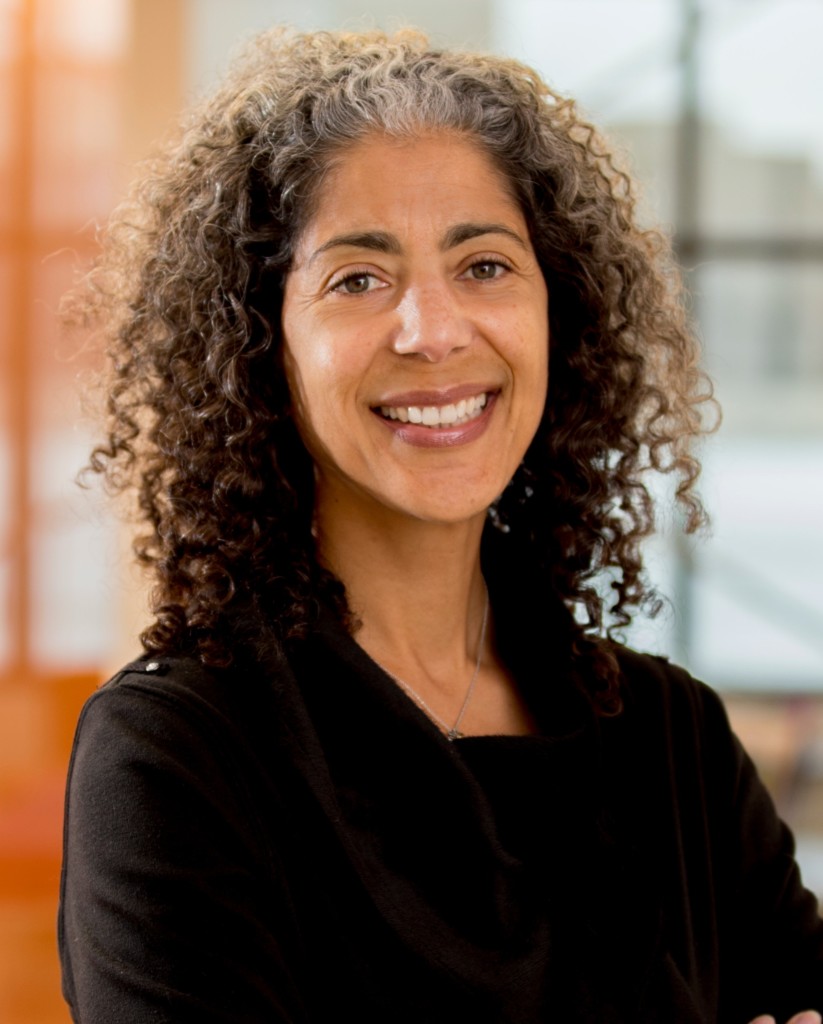
“I think I have the disposition of a sociologist,” says Professor Mary Pattillo. “I’m curious about people and relationships, groups, organizations and society.”
Dr. Pattillo has been teaching sociology at Northwestern University for 24 years. She was encouraged to enter the field by her sociology professor in her undergraduate program at Columbia University who recommended she seek a Ph.D. at his alma mater, the University of Chicago.
Although she does not believe in a genetic inclination toward doctoral studies, Dr. Pattillo’s parents are both academics. “I had been socialized into research and higher education pursuits, but I pushed back a bit on becoming a professor,” she recalls. “I really wanted to do community-facing work like run a nonprofit or do youth intervention work.”
She is fulfilling that vision by teaching at the Stateville Correctional Center through the Northwestern Prison Education Program. “It’s the same class I teach to my students at Evanston. I use the same syllabus and keep all the assignments the same.”
Northwestern launched NPEP at Stateville in 2018. The first two cohorts of 20 men have earned Associate’s Degrees and are now working on their Bachelor’s. Twenty women at Logan Correctional Center are also currently working on their Associate’s Degrees.
“My students at Stateville ask me why I am teaching them,” Dr. Pattillo said. “I have many answers: I want to teach all kinds of students; they’re great students; and it’s an interesting place to teach. But the mantra to whom much is given much is required is something that inspires me to want to better the world and to be a better person.”
Michelle Browne
Broker, @Properties Christie’s International Real Estate
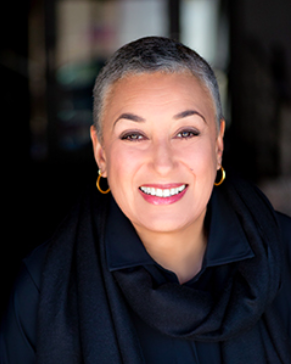
As a real estate broker, Michelle Browne is not just selling houses; she’s creating neighborhoods. She recently explained, “The best way to change and uplift a community is to beautify the area and bring in residents who care and are willing to invest in the community.”
Browne has been a realtor for more than 35 years and is currently a broker with @properties Christie’s International Real Estate, the largest independent real estate brokerage firm in the state of Illinois and one of the top nine residential brokers in the U.S. She chose real estate as a career after working briefly selling designer shoes at Neiman Marcus and as a journalist. Her first foray into the industry was investment real estate which led her into project development.
Browne is a born and bred Chicagoan who has lived in a few different neighborhoods both in the city and its Northern suburbs. As a resident of Bronzeville, Browne was an active member of the Bronzeville Neighborhood Collaborative (BNC). Historic Bronzeville was the mecca of opportunity for African American people and families who migrated from the South. Since August 2013, the BNC has been working collaboratively with aldermen, residents and business owners to strengthen the neighborhood.
Although she has since moved to the South Loop, Browne remains committed to Bronzeville by actively supporting such activities as the Bronzeville Neighborhood Collaborative Annual Winter Coat Drive and the Bronzeville en Blanc gala event. “I am really a person of two neighborhoods: South Loop, where I currently live, and Bronzeville,” says Browne. “I love the vibe, the energy and the neighborhood feel of Bronzeville. I like the convenience, amenities and easy lake access of the South Loop.”
Tovah McCord
Executive Director, Northern Illinois Community Initiatives
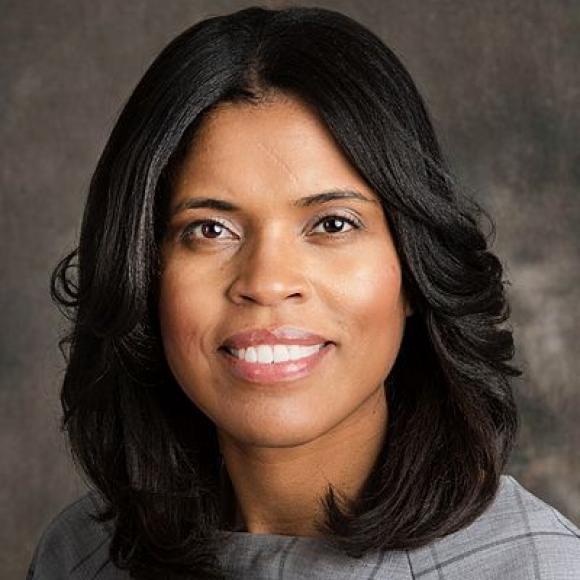
When Tovah McCord first stepped onto her career path, she did not intend to enter philanthropy. Her first job after earning an MBA at the University of Southern California Marshall School of Business was marketing hair products. “I didn’t find that very fulfilling,” she recalls.
As the daughter of two educators, the importance of education was instilled early and led her to work at the all-girls public high school, Young Women’s Leadership Charter School, which closed in 2021. “The experience made me more passionate about doing my part to give back and support people who did not have the same types of opportunities I’d had,” says McCord. “Even though I didn’t consciously choose philanthropy, I followed what I was passionate about.”
After leaving YWLC, McCord joined Elon Musk’s brother, Kimbal, at Big Green, a nonprofit supporting garden programs for schools, families and communities. “I was the first regional director.”
She then became the first foundation director for the Chicago Blackhawks before joining Nicor Gas as the first Executive Director for Northern Illinois Community Initiatives. “I enjoy the process of building something from scratch — all the creativity and learning and best practices you can bring to that,” McCord said.
The Northern Illinois Community Initiative is a corporate foundation overseen by a board of Nicor employees. “We’re focused on three communities in Northern Illinois that are underserved,” says McCord. “We try to support the nonprofits that may typically get overlooked but are doing great things. By infusing a good amount of money into our grantees they can deliver more services to reach more people. That’s giving these organizations a boost of confidence. They feel validated.”
In her free time McCord recently resumed piano lessons, an activity that not only brings her joy, but influences how she approaches her work. “I absolutely love it. My teacher told me practice shouldn’t always be linear. Isolate the problem, work on it and then go backwards. That’s been so helpful in learning to play and in doing my job.”
Tracie D. Hall
Executive Director, American Library Association
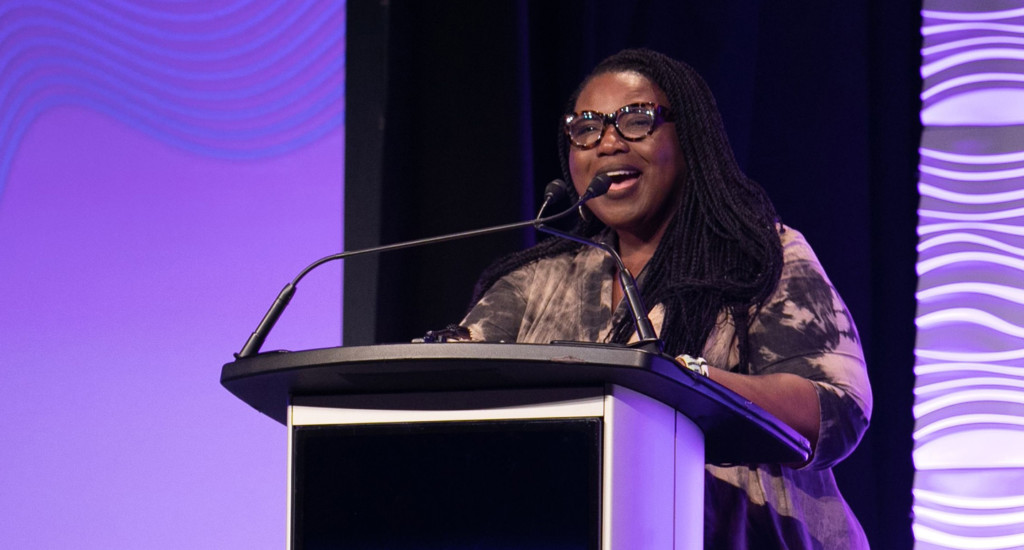
Tracie D. Hall stepped into the role of Executive Director at the American Library Association three years ago just as a cultural firestorm ignited. “After George Floyd’s murder everyone was talking about inclusion and diversity,” she recalls. “But maybe because of that uplift of social justice as a civic ideal, books speaking to the lived experiences of people of color and LGBTQIA people were now being targeted, vilified, and taken out of systems. We were seeing the rise in censorship at an even greater pace than during the Joseph McCarthy era. That was so disheartening.”
The ALA, founded in 1876, is the oldest and largest library association in the world. Hall is only the tenth Executive Director and the first Black woman to hold the position. As one of her first acts, she set out to counter book bans. Along with ALA staff and Association members Hall created the platform, United Against Book Bans, a national initiative to empower readers to fight censorship. “As a librarian, I believe access to literacy and the right to read are foundational human rights,” she says.
Hall did not set out to become a librarian, however. “I had always been interested in working with people who were unhoused or unsupported in some way. That really resonated for me.”
She graduated from the University of California Santa Barbara with dual Bachelor’s degrees and earned a Master’s from the Yale University School of International and Area Studies and thought she’d go into policy work. But while working at a homeless shelter in Santa Monica, California, Hall realized the impact libraries can have on the community. She explains, “I’ve worked at, visited, consulted for and spoken at 200 or so libraries. I don’t think there’s any public service or educational institution that has the same capacity to facilitate the kind of personal growth and community engagement and transformation that libraries can.”
Valerie Jarrett
CEO & Board Member, Barack Obama Foundation
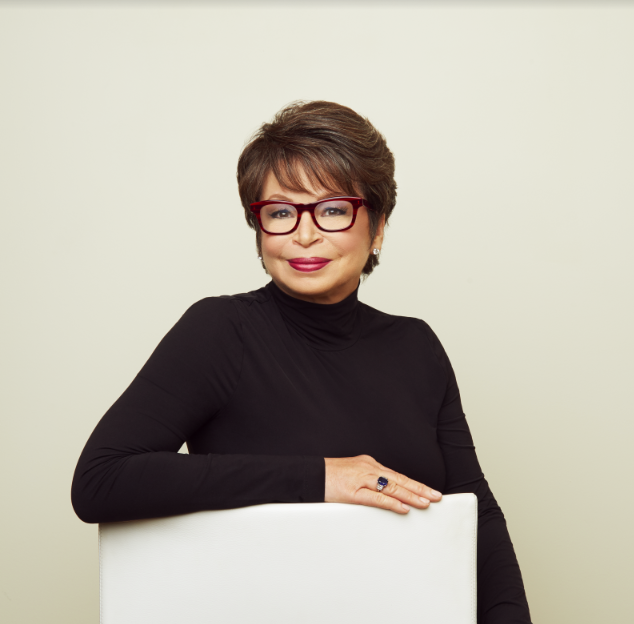
When Valerie Jarrett made the decision to go to law school, she says she was doing what everyone else thought she should do. “I was the first lawyer in my family,” she recalls. “My parents were very proud of me.”
Even though she worked in a beautiful office in a high-rise overlooking Lake Michigan, Jarrett was miserable. Having just had a baby and in the middle of a divorce, she asked herself, “Am I doing anything that my baby will ever actually be proud that I’m doing?”
Her response was to leave the prestigious law firm and enter politics, first working in Chicago City Hall for then Mayor Harold Washington. Jarrett rose to the political stratosphere when she was appointed Senior Advisor to President Barack Obama in 2009. She served in that position until 2017, the longest tenure for a senior advisor to a president in history.
Today Jarrett is the Chief Executive Officer of the Obama Foundation and a Senior Distinguished Fellow at the University of Chicago Law School. “I love my work,” she says. “I have the opportunity to inspire, empower, and connect the next generation of leaders and give back to the city of Chicago, the country and the world.”
Jarrett is the author of the New York Times bestselling book Finding My Voice: My Journey to the West Wing and the Path Forward, published in April 2019. She serves as Board Chair of Civic Nation, Co-Chair of The United State of Women and is a One Million Black Women Advisory Board member. “I have learned that balance is an unrealistic goal,” Jarrett reflects. “So, I no longer make it my objective. Rather I develop strategies that enable me to replenish my energy. I work out regularly, get together mostly on weekends with family and friends and when I take breaks from work, I make every effort to be present in the moment.”
Right now the moments Jarrett most enjoys being present for are the times she spends with her two grandchildren, James and June.
Lauren Underwood
Representative, 14th District of Illinois
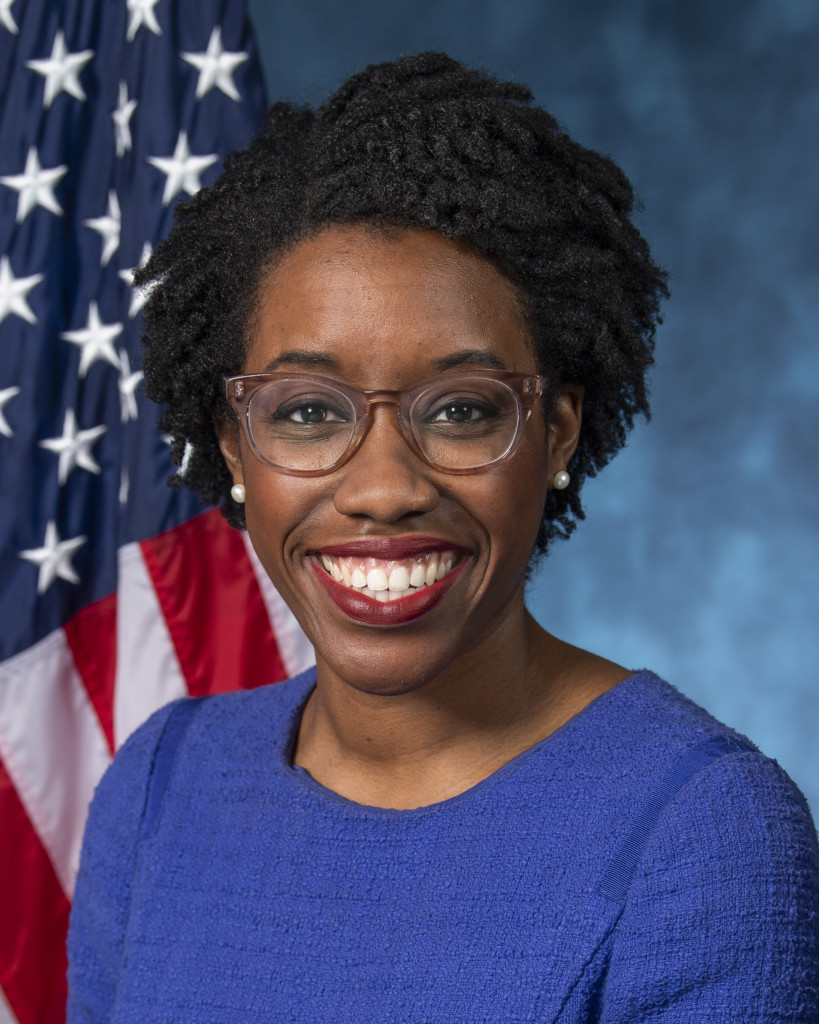
In January, Lauren Underwood was sworn in for her third term representing the 14th District of Illinois in Congress. At 36, Underwood is the youngest Black woman to serve in the House of Representatives. She is the first woman, the first person of color, and the first millennial to represent her community in Congress.
Rep. Underwood, who grew up in Naperville, is a registered nurse having earned her degree from the University of Michigan before going on to Johns Hopkins University where she received two Master’s degrees in nursing. Her own health challenges inspired her to enter politics. She was diagnosed with supraventricular tachycardia as a child. Because it’s considered a pre-existing condition, she risked losing her insurance coverage during the 2017 political fight to repeal the Affordable Care Act. When previously asked why she chose to serve in Congress, Rep. Underwood said, “The work I’m embarking on is an extension of my nursing practice, an opportunity to ensure that millions and millions of Americans have high-quality health care coverage so that they can lead healthy, productive lives.”
The congresswoman co-founded and co-chairs the Black Maternal Health Caucus. She serves on the House Committee on Veterans’ Affairs and the House Committee on Appropriations and is a member of the Future Forum, a generational caucus composed of 35 young members of Congress who focus on issues important to younger Americans.
Rep Underwood is a member of the Congressional Black Caucus (CBC), the LGBT Equality Caucus and the Gun Violence Prevention Task Force. She sits on the House Democratic Steering and Policy Committee. In a televised interview on Election Night 2022, Rep. Underwood said, “I’m excited to get to work again and deliver for the families in our community. There’s a lot to do.”
Christa Hamilton
CEO, UCAN
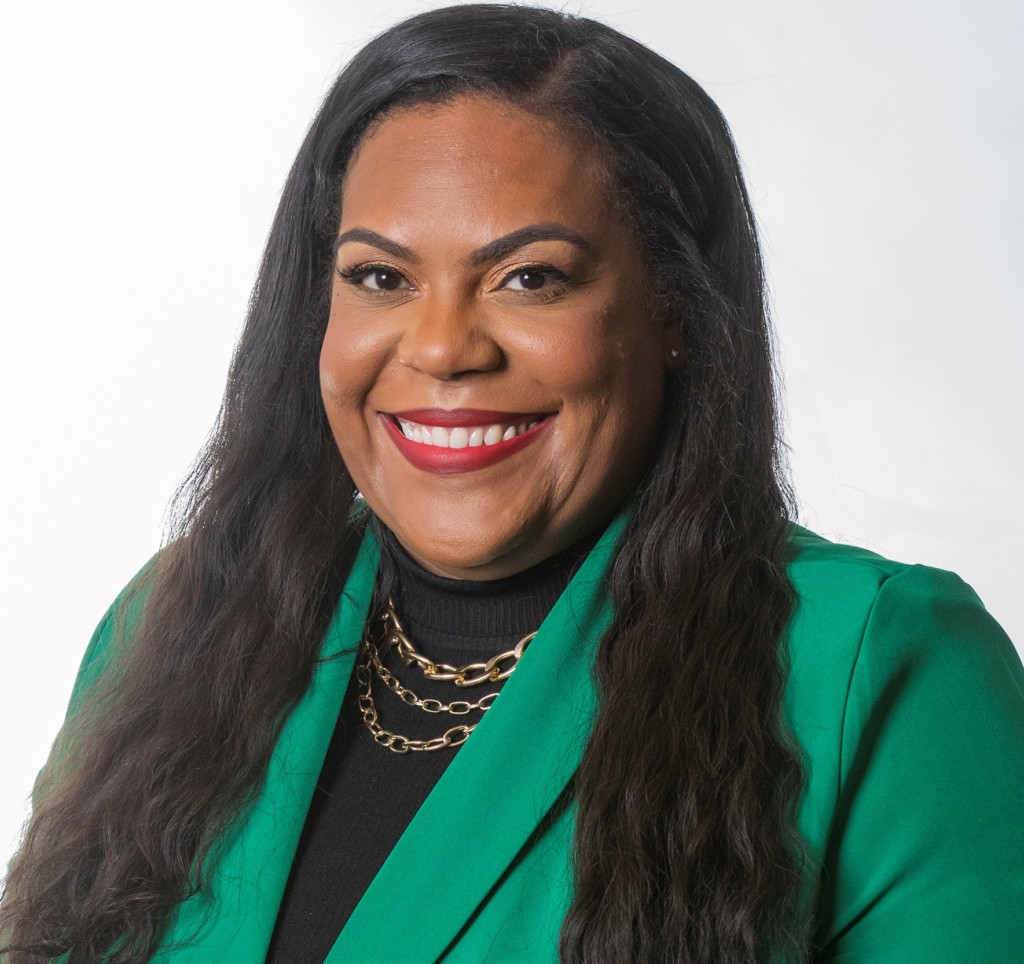
As a girl growing up in Chicago, when Christa Hamilton went downtown, she gawked at the young women with briefcases heading to corporate jobs. “That was so exciting to me,” she recalls. “I wanted to be part of that business world.”
A first-generation college graduate with a Bachelor of Science in Business Administration from Florida A&M University and an MBA from National Louis University, Hamilton entered the corporate world as a regional procurement manager for Walgreens, but it wasn’t as satisfying as she’d hoped. She explains, “I wanted to be more. I wanted to personally do more, to stretch myself and give back to the community.”
Although she was unfamiliar with the nonprofit landscape, Hamilton quickly realized that she could use her business-related knowledge to help people. “Now I’m in the business of supporting people,” she says. “There’s nothing more satisfying for me than to wake up every day and know that what I do for work helps people move along and have a better life.”
Hamilton is the first woman and first African American to serve as CEO at UCAN, a 152-year-old youth advocacy organization that serves over 21,000 at-risk children, youth and families across Illinois.
As the mother of a 2-year-old son and an 8-year-old daughter striking the work/life balance can be a challenge, but Hamilton has a lot of help. “It’s a real family effort,” she explains. “And my staff and my leadership team are incredible. They support me when I need to step away and be a mommy.”
She’ll make time at least once a month for a little self-care and even indulges an interest in rare perfumes, but Hamilton admits her joy comes from serving others. She sits on the boards of Instituto del Progreso Latino and scaleLIT, previously known as Chicago Citywide Literacy Coalition. She’s also committed to helping at her church, Fellowship Missionary Baptist Church. “I’ve achieved more than I could have imagined in my life already,” Hamilton reflects. “To help others achieve means the world to me.”
More From Better:
- How to Restore, Revive and Thrive in 2023: Guide to Health and Wellness for Your Best Year Yet
- Doctor Advocates for People to Give Blood Through a Nationwide Initiative: Award Sponsor Fresenius Kabi Honors 2022 Red Cross Blood Services Hero
- Can One Person Really Make an Impact? The Answer Is Yes — Here’s How
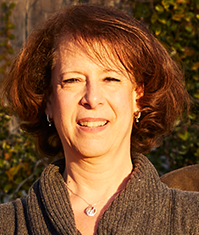
Susan Solomon Yem is an internationally published writer who likes telling other people’s stories. She enjoys writing about parenting, education, and how individuals achieve greatness in their chosen endeavors.
